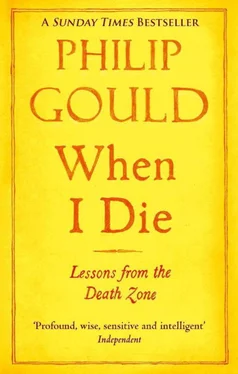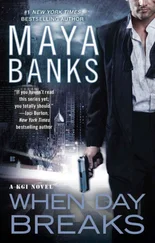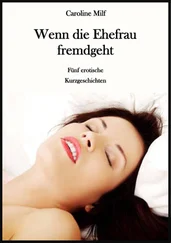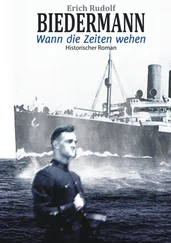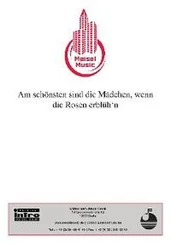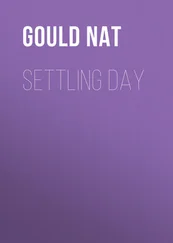David said there was nothing for it but surgery. There was no certainty that this was possible, but if it could be done, it had to be done quickly. I had the impression that unless it could be stopped in its tracks, the tumour was about to make its final decisive move.
I had dinner with Tony Blair. I was not so much low as lost; I could see no way through. Why had it happened? The first diagnosis I understood: I got cancer as others did and I fought it, with as much determination as I could muster. I had taken every pill, undergone every treatment, done everything required of me, got through the crucial two-year mark and still it had returned. Why had it come back?
Tony paused for a second and said slowly: ‘Because the cancer has not finished; it is simply not done with you, it wanted more. You may have changed but not by enough, now you have to go on to a higher spiritual level still. You have to use this recurrence to find your real purpose in life.’
Tony was right. I had to find meaning in this recurrence, had finally to come to terms with the purpose of the cancer.
Meanwhile a sub-plot was emerging. People at the Marsden were starting to say that this kind of recurrence only happens when there are issues with the original surgery. That this was the reason the recurrence was localised in this unusual way.
I arranged a conference call between Murray Brennan, who had performed the surgery, Gail and me. I expected him to knock any possibility of surgical problems out of the park with his normal self-assurance. But he did no such thing. With some courage he said that he believed he may have adopted the wrong strategy with the surgery, and as a consequence had left too much of the stomach in, where he now believed the cancer cells may have lain dormant.
He was saying he had not been radical enough.
I took this well, and admired his honesty. Gail just issued a quiet, guttural groan, not of sadness but of suppressed rage at the unfairness of it all.
Gail is never at her most relaxed when hearing bad news, especially when its cause was in some way avoidable. In effect the British surgeons had been right: radical was best. But this could be said only with hindsight. The decision had been taken totally on its merits and the responsibility was all mine.
Later I talked to Murray about the surgery, reminding him that he was and is a great surgeon, and that sometimes things just do not work out. That is in the nature of life.
Murray called me at every stage to offer support and encouragement. He stayed on the pitch for the whole game. He is an admirable person.
David Cunningham was not giving up. He suggested Professor Mike Griffin at Newcastle’s Royal Victoria Infirmary. Mike had established the Northern Oesophago-Gastric Cancer Unit, the largest oesophageal unit not just in the UK but in Europe. David believed that Mike was pretty much the best oesophageal surgeon in the world at the moment, and that he was at the peak of his form. Mike would tell me honestly and objectively if surgery was possible. I should go up to Newcastle just as soon as I could.
I phoned Murray Brennan. He said that he knew Mike Griffin well, had been to his unit more than once, and that he was probably the best person anywhere to do this surgery. He also said that he would have been the ideal person to have performed the original surgery, and blamed himself for not recommending it.
It was not his fault, of course. In dozens and dozens of conversations with senior representatives of the NHS and beyond, no one had mentioned Mike Griffin or Newcastle to us. Alan Milburn, who was always caring and considerate towards me, later conducted some research, spending a whole morning on the internet trying to find whether a normal cancer patient could connect either to Mike Griffin’s oesophageal unit or indeed to any other specialist oesophagus unit, but he failed. From a London perspective at least, Mike’s unit was in a kind of information black hole.
That night I phoned Mike Griffin and immediately took against him. I had grown used to relaxed, intimate conversations with consultants in which pretty much everything was conducted with a kind of casual equality.
Mike was having none of that. He made it clear that he would be making the decisions, not me, that there was absolutely no certainty that the operation could be carried out, that this was the NHS and that he was in charge. There would be a week of tests, then a team meeting to decide what treatment was appropriate. He just took the situation over.
I did not like this at all. I wanted the operation to go ahead whatever the tests said, and I certainly was not prepared to cede control to anyone.
I arrived in Newcastle on 21 September 2010. It was a very different journey’s end this time. Kennedy Airport in New York was one thing, Newcastle Central Station quite another. My train arrived beneath a Victorian edifice held together by huge arched spans, the essence of a British railway station.
I took a taxi to the hotel where I was to spend my nights, a large, impersonal building overlooking the Tyne, although with amazing views of a clearly transformed city. Newcastle might not quite be New York, but it still had power of its own.
Far too early the next day, I took another taxi through the drizzle to reach the Royal Victoria Infirmary, a stone’s throw from the Newcastle United football stadium, St James’ Park.
I was stationed for the week in a tiny little ward not far from the oesophageal unit. It comprised just five cubicles, and most of the others were empty. The nurses could not have been friendlier. I had some basic tests and then lay on my bed and waited.
Mike Griffin came in and I immediately realised that I had misjudged him. He was dressed in his scrubs and exuded confidence and authority, his presence immediately making me feel safe. He sat down on the bed and was disconcertingly direct. My position was very serious, only surgery could save me, he said, but there was no guarantee at all that I could have it.
The tests would be taken and at the end of the week my case would be debated at a team meeting. It was not just his decision but the team’s. He was very tough, but his toughness was reassuring.
He had gone to school at Fettes where he was a contemporary of Tony Blair, although my long association with Tony was not in his view necessarily a mark in my favour. He had played rugby for Scotland, moved into medicine and then decided that oesophageal cancer was his life. He had looked for somewhere to set up his unit, decided on Newcastle and then built up the largest and probably the best centre of its kind anywhere in the world.
He worked seven days a week, usually starting at half-past six in the morning and finishing at ten or so at night. He never stopped, seeing all his patients twice a day, sometimes more. He instinctively distrusted southerners, New Labour and private medicine, which meant I had a lot of ground to make up.
I completed the week of tests, culminating in an endoscopy which he performed himself. Later that evening he came in to see me, and I felt that in some way I had won him round.
He could not say for sure if the surgery would go ahead, but he was prepared to say there was nothing in the endoscopy that would stop it happening. He was giving me a very faint green light. Then we chatted about cancer and life and I started to talk – typically – about my cancer journey.
He stopped me dead in my tracks, looked me in the eye, and said the one mistake I had made was leaving the NHS. If I had stayed inside it, I would not be in this position today. I argued back, explaining my particular circumstances, but it was all humbug to him. I had left the NHS and I had blown it. He loved the NHS, and he believed that what made it work and what made it special was a commitment to public service that transcended private interest.
Читать дальше
